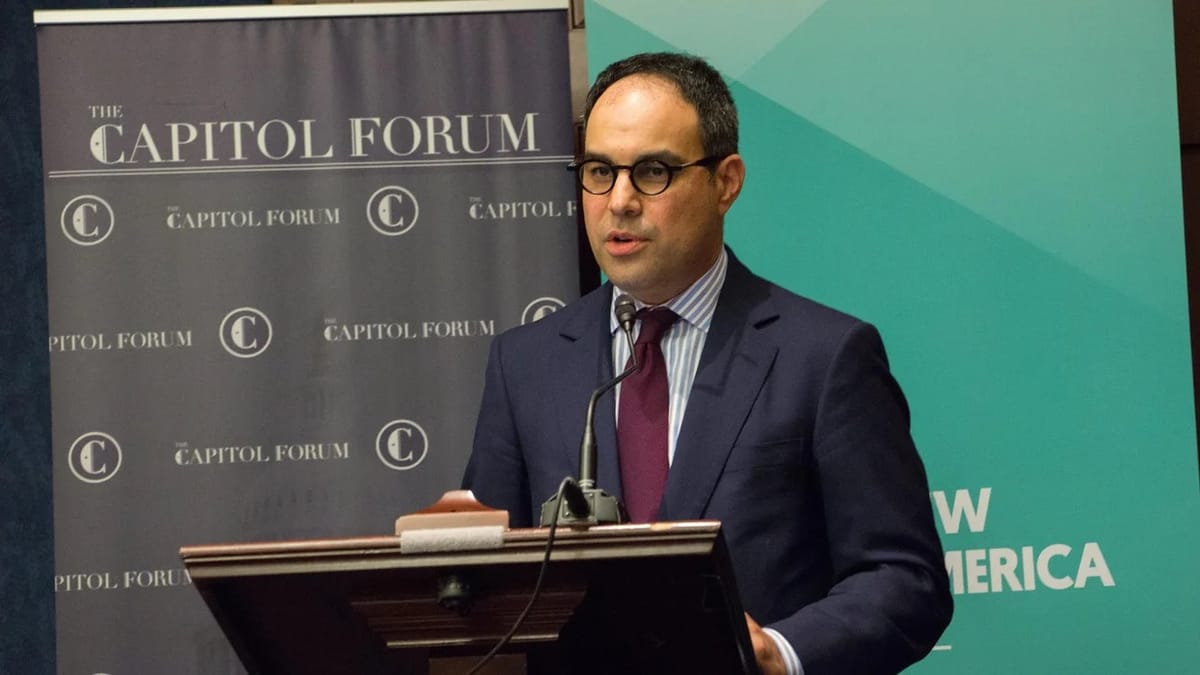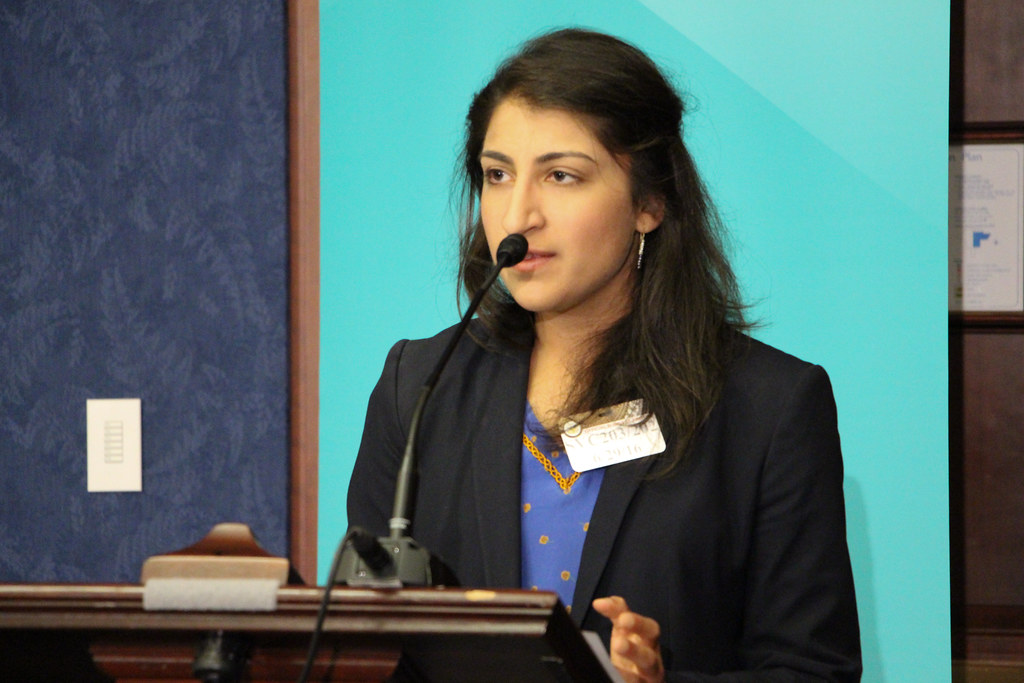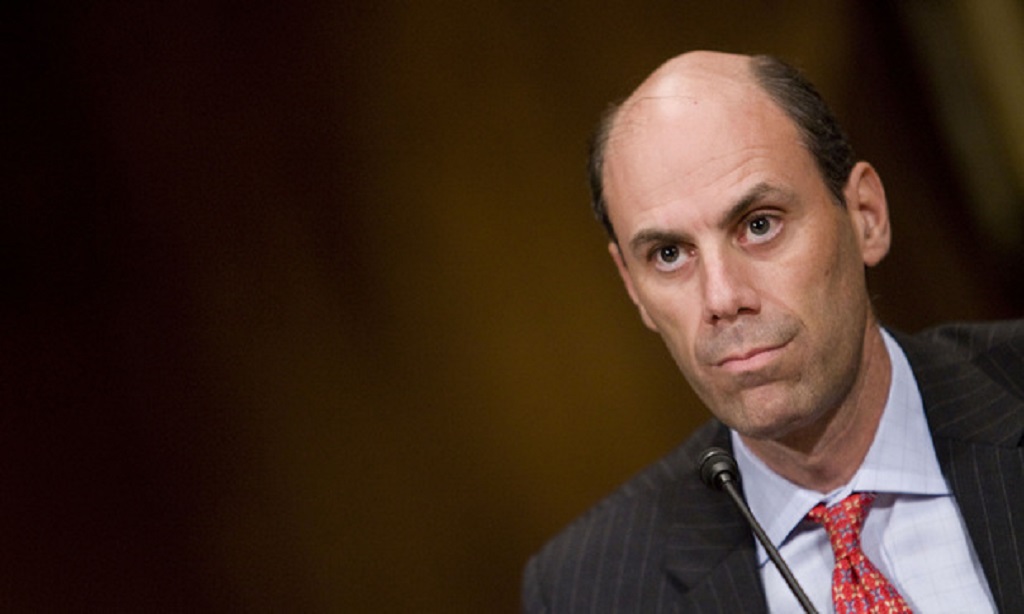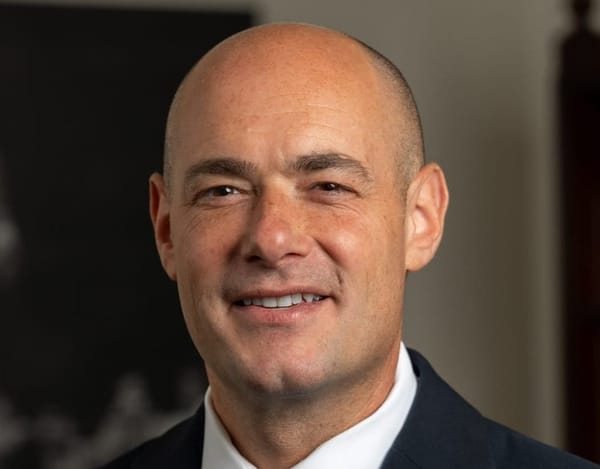Explainer: Antitrust Heats Up as Biden Selects Tech Critic Jonathan Kanter for Top Enforcement Spot
In the fourth in a series of explainers, Broadband Breakfast examines the Biden administration’s intent to bash Big Tech.

WASHINGTON, July 23, 2021 – On Tuesday, President Joe Biden said he will nominate Jonathan Kanter, a critic of Google, as the next assistant attorney general in charge of the Justice Department’s antitrust division.
Kanter is known for his criticism of the “consumer welfare standard” that has come to dominate antitrust enforcement. As reported by Broadband Breakfast, at a 2019 event Kanter hosted by the Capitol Forum, Kanter said that antitrust involves both keeping prices low and protecting the competitive process.
Then an attorney in private practice with Paul Weiss, Kanter – who has also had experience investigating mergers for the Federal Trade Commission’s Bureau of Competition – said that it was unclear that Congress intended for the scope of antitrust laws to be so narrow.
Kanter is the latest in a number of high-profile selections made by Biden that definitively manifest an intent to put big tech under a microscope.
Within the space of four months, Biden will have placed three such critics into major positions, including net neutrality advocate Tim Wu to the National Economic Council and the appointment in June of Lina Khan to chair the Federal Trade Commission, which will investigate big technology companies.
The nomination of Kanter comes after Biden, on July 9, signed an executive order to crack down on the increasing market power of big technology companies and promote competition. The order targets “killer acquisitions,” in which technology companies have purchased “hundreds” of nascent competitors in the past decade. The order says that federal agencies have not done enough to examine or condition these mergers.
Before that, on July 2, the FTC passed a measure in a party-line vote to rescind a 2015 policy statement that limited the scope of antitrust regulation to the framework established by the Sherman Act of 1890. Section 5 of the FTC act permits the FTC to enforce unfair business practices that are not necessarily explicitly outlined by the Sherman Act. By rescinding the statement, the agency will be able to more aggressively crack down on anticompetitive business practices.
Antirust policy and law have a long history in the United States. When antitrust comes to mind, some instantaneously think the United States taking Microsoft to court in 1998 over its alleged monopolization of the personal computer market.
But it’s much older and richer than that. And with quickly emerging developments in antitrust policy on the hill, Broadband Breakfast has selected this topic for a deep dive for our latest explainer.
- Broadband Breakfast Explainer 1 (Net Neutrality): On the Cusp of Sea Change, Broadband Breakfast Examines the Net Neutrality Debate
- Broadband Breakfast Explainer 2 (Spectrum): Is Spectrum Sharing a Key to Broader Connectivity Goals?
- Broadband Breakfast Explainer 3 (Section 230): With Florida Social Media Law, Section 230 Now Positioned In Legal Spotlight
- Broadband Breakfast Explainer 4 (Antitrust): Antitrust Heats Up as Biden Selects Tech Critic Jonathan Kanter for Top Enforcement Spot
The original guiding principle behind ‘consumer welfare’
In his 1978 book, The Antitrust Paradox, Robert Bork, former Solicitor General of the U.S., coined the term “consumer welfare” in his attempt to articulate the historical standard of antitrust, dating back to the passing of the Sherman Antitrust Act of 1890.

Archival photo of Robert Bork by Jose R. Lopez from The New York Times
While consumer welfare has been the metric of measuring the need for antitrust enforcement since the 1970s, with the rise of the Chicago schools of thought regarding economic policy, the standard has many frustrated today and pushing for a change in thought.
Consumer welfare refers to the collective benefit derived from all consumed goods and services in a market. It’s measured by assessing an individual’s welfare defined by their own assessment of the satisfaction of a good, given the good’s price and their income. Their assessment is added to the collective’s assessment of that same good, and the sum of all assessed value is considered the consumer welfare in that market.
In general, higher prices mean less consumer welfare and lower prices mean more consumer welfare. Similarly, however, less consumer welfare translates to more revenue and better profit margins for firms.
The problem, according to the critics of Big Tech, is that online platforms such as Google, Facebook, and Twitter present virtually no cost to consumers. Consumer welfare, they argue, cannot measure how these firms are treating their consumer base and whether consumer interests are being harmed or helped.
Challenges to the consumer welfare standard
While antitrust enforcement has historically been measured against this metric, recent happenings in Washington dating the past nine months is challenging this standard as policy makers and legal experts alike have found themselves increasingly dissatisfied with the state of the private sector.
Last year, in October, the Department of Justice opened an antitrust lawsuit against Google, claiming foul play in Google’s competition practices. The FTC followed suit two months later in December, claiming Facebook has violated federal law in illegally maintaining a monopoly in the personal networking market.
Following a 16-month investigation completed last year by the House Judiciary’s Antitrust Subcommittee scrutinizing the business practices of Amazon, Apple, Google, and Facebook, a package of six antitrust bills awaits vote on the House floor after successfully passing a grueling markup in the House Judiciary Committee.
If passed, the six bills would mark the greatest change in antitrust legislation since the passing of the Clayton Act in 1914 and represent a marked shift in antitrust enforcement.
The July 1 rescinding of the 2015 policy statement that limited the scope of antitrust regulation will mean “greater scrutiny of mergers,” with special attention to the “acquisition of nascent competitors,” as well as, “competition by ‘free’ products, and the effect on user privacy.”
The language used there is particularly interesting because it signals a shift away from the school of thought historically based on prices and consumer welfare, to an embrace of newer theories of competition regulation and antitrust enforcement.
Evolving antitrust: From the Sherman Act to the Chicago school
In the later 19th Century, business collusion and monopoly power posed a threat to America’s burgeoning economic frontier. Monopoly powers stifle innovation in markets when they purchase all other competing firms, and by controlling their supply of a good, they in turn control its price pushing higher prices onto consumers.
To combat this, the Sherman Act of 1890 was passed to regulate domestic business practices that were unfair and harmed consumers by making it illegal to monopolize the trade of any single market or area of commerce in the United States. It also makes it illegal for firms to collude in ways that manipulate or fix prices.
The Sherman Act had a rough start, however. Its language was vague, and prosecutors consistently failed to employ the act in ways that sufficiently regulated business in its intended ways. This led, 24 years later, to the creation of the Clayton Act, which clarified the language of the Sherman Act.
For example, while the Sherman Act made the formation of monopolies illegal, which was difficult to define, prove, and enforce, the Clayton Act made certain business practices that are conducive to monopolization illegal. If the Sherman Act is the dog of antitrust, the Clayton Act is the teeth that gives it its bite.
Referred to by some as the death of antitrust, in the 1970s and 1980s the Chicago school of economic thought caught wind and became the prevailing philosophy of economic doctrine in the United States. The school argues that markets operate most efficiently on their own, without government intervention.
While traditional antitrust approaches aimed at limiting extreme concentrations of power, the Chicago school of thought argued that government intervention makes markets operate inefficiently, which pushes higher prices onto consumers. It argues that consumer interests are best protected by competition, even if that only comes from a few large firms in an industry.
The Lina Khan essay on Amazon
A 2017 essay by now acting FTC Chairwoman Lina Khan while she was a student at Yale law school challenged the Chicago imperative and revived the dying discussion of antitrust enforcement.
Khan’s essay, Amazon’s Antitrust Paradox, examined Amazon’s business structure, taking note that while the company’s profit margins are and always have been meager, they have operated with an enormous capital expenditure, which has allowed them to seize a controlling stake in not just online retail, but expand and become “a marketing platform, a delivery and logistics network, a payment service, a credit lender, an auction house, a major book publisher, a producer of television and films, a fashion designer, a hardware manufacturer, and a leading host of cloud server space.”

FTC Chair Lina Khan
Khan argued that prices are too narrow a standard to measure the need for antitrust enforcement, and regulators should take a broader approach at measuring competition. Her essay gained traction with legal scholars and has led to a new, emerging pattern of economic thought known as the Brandeisian school of thought, which argues that measuring prices is too narrow—that observing and scrutinizing business structures is an essential element of antitrust enforcement.
Congress’ package of antitrust bills in the House integrate elements of Brandeisian thought by concerning itself directly with market concentration and making explicit the illegality of certain business practices, such as favoring one’s own product on marketplaces they operate and mandating data transparency for online platforms.
The package of proposed bills would only apply to firms with a market cap exceeding $600 billion, signaling a distinction between how massive firms will be regulated comparedd to their competitors. Domestically, only six firms exist with such a market cap, and only one of those is not a Big Tech firm (Tesla Inc). The other five are Apple, Microsoft, Amazon, Alphabet Inc (the parent company of Google), and Facebook.
Online platforms and the consumer welfare standard
Last year, cases were opened by the Justice Department antitrust division and FTC against Google and Facebook, respectively, over antitrust and competition concerns. These cases are both being prosecuted with the original legislation written in the Sherman and Clayton Acts and fought under the lens of consumer welfare.
Google was accused by the antitrust division of illegally maintaining a monopoly power through anticompetitive and exclusionary practices. Facebook was accused by the FTC for similar reasons—specifically for anticompetitive practices in acquiring nascent competitors Instagram and WhatsApp in the early 2010s. The main question facing these trials is whether the consumer welfare standard is enough to tackle these firms and substantiate the government’s claims against them.
The answer: It probably won’t be, primarily because Google and Facebook don’t charge consumers to use their products. They are free to anybody with internet access. And since the consumer welfare standard deals with price, and how those prices are affecting consumers, there is no way of applying the consumer welfare standard to these firms.
Without this standard, lawyers will have little basis of empirically measuring the harm Google and Facebook may be imposing on the market, which will likely make convicting them extremely difficult.
In fact, though the FTC has until the end of July to rework and resubmit their case, U.S. District Judge James Boasberg threw the FTC’s case against Facebook out of court, claiming that it was “legally insufficient.”

Photo of Judge James Boasberg by Diego Radzinschi in Law.com
Recently resolved and ongoing cases, including: FTC v. Facebook
Facebook was accused by the FTC of illegally maintaining a monopoly in the personal networking market largely because of its acquisition of Instagram in 2012 and WhatsApp two years later.
The agency wrote in a report that those acquisitions, which came at a time when both competitors were growing into massive communications platforms, made it more difficult for other social networking platforms to compete at scale. It also accused the company of forcing third-party developers interfacing with the platform to refrain from promoting other social services.
In Judge Boasberg’s opinion, throwing out the FTC case, he wrote that the FTC had failed to offer adequate evidence that Facebook had monopolized the market for social networking.
Looking forward, however, the FTC’s recent decision to rescind the 2015 statement that directed them to enforce antitrust within the framework of the Sherman Act will allow them more leeway in prosecuting Facebook when they resubmit the case later this month.
United States v. Google
The Justice Department, alongside eleven state attorneys general, sued Google in October, accusing it of illegally maintaining a monopoly through anticompetitive and exclusionary practices. Google does not share its user statistics, but the DoJ claims that around 90% of online searches are routed through Google.
The antitrust division’s complaint alleged that Google entered into a series of exclusionary agreements with firms that promoted their services over competitors, barring the consumer’s choice in the matter.
The division argues in its complaint that these practices damage competition and harm consumers through reducing the ability of innovative competitors to compete at scale with Google. However, alongside the difficulty of empirically demonstrating that harm has been pushed onto consumers, the division must also battle the notion that, generally, most consumers may be happy with Google’s products, and there exists little friction between the company and the public.
Google Play Store lawsuit
On July 7, a group of 36 state attorney general, alongside Washington, D.C., launched a new antitrust case against Google, accusing the search engine of exploiting its control of the Android app store. The lawsuit challenges a policy that forces Google Play app developers to pay a 30 percent commission fee on sales made through the app.
According to reports, the Google Play app store for Android devices is responsible for more than 90 percent of Android app downloads in the United States. No other Android app store has hold of more than a 5 percent market share, according to the plaintiffs.
Essentially, the complaint alleges that, because of Google’s dominant hold in the Android app market, there exists little competition and app developers therefore have no choice but to go through Google wo market their apps and pay the 30 percent commission fee.
Prosecutors will need to, as with the other antitrust cases, prove that Google’s actions have limited competition in the private sphere and damaged consumer welfare in the public.
District of Columbia v. Amazon
On May 25, 2021, Karl Racine, attorney general of Washington, D.C., sued Amazon, alleging that the company’s policies have led to fixed prices, raising prices for Washington, D.C. residents.
The case was filed specifically through the District of Columbia, and is not being prosecuted by federal agencies, the same way the Facebook and Google cases are. However, if Racine successfully establishes liability by Amazon, the ruling could have far-reaching consequences and impact the states.

Photo of Karl Racine by Lexey Swall in the Washingtonian
The Office of the Attorney General alleges that Amazon fixed online retail prices through a policy that applies to third-party sellers on its platform, which prevents third-party sellers from offering their products at lower prices on any other online platform, including their own. The problem with the policy, D.C. argues, is that Amazon charges high fees to sellers using their platform, upwards of 40% in certain cases.
That fee is worked into the price of the good a seller is providing on Amazon, and because they cannot offer that product for a cheaper price anywhere else, Amazon’s commission fee is in turn worked into the price of the good being sold elsewhere. If retailers try to work around this, they risk losing the sales they get from selling their product on Amazon.
Washington, D.C.’s Assistant Attorney General, in its report, said that Amazon accounts for 50-70 percent of all online commerce. Allegedly, Amazon is using this market dominance to manipulate prices throughout the rest of the market. The higher prices are pushed onto consumers, and such business practices are prohibited under the Sherman and Clayton Acts.
The future of antitrust
The package of proposed antitrust bills successfully passed through the House Judiciary Committee and will likely pass in the House of Representatives. However, save a few Republican dissenters who helped draft the bills, the voting turned out to be partisan and the vote followed party lines with few exceptions.
At the risk of Democrats defecting, and with a slim majority in the Senate, the Democrats may need to recruit more GOP support for the bills if the they stand a chance of being passed into law.
On July 9, the FTC opened an official investigation into the legality of Amazon’s acquisition of major entertainment studio, MGM. Amazon filed a recusal motion against Khan, claiming that her special interest in Amazon marks her involvement as a conflict of interest, asking that she remove herself from any proceedings involving Amazon.
Whether the recusal stands or not, it is likely that aggressive antitrust enforcement will be applied under Khan’s leadership throughout the duration of the Biden Administration.
- Broadband Breakfast Explainer 1 (Net Neutrality): On the Cusp of Sea Change, Broadband Breakfast Examines the Net Neutrality Debate
- Broadband Breakfast Explainer 2 (Spectrum): Is Spectrum Sharing a Key to Broader Connectivity Goals?
- Broadband Breakfast Explainer 3 (Section 230): With Florida Social Media Law, Section 230 Now Positioned In Legal Spotlight
- Broadband Breakfast Explainer 4 (Antitrust): Antitrust Heats Up as Biden Selects Tech Critic Jonathan Kanter for Top Enforcement Spot








Member discussion